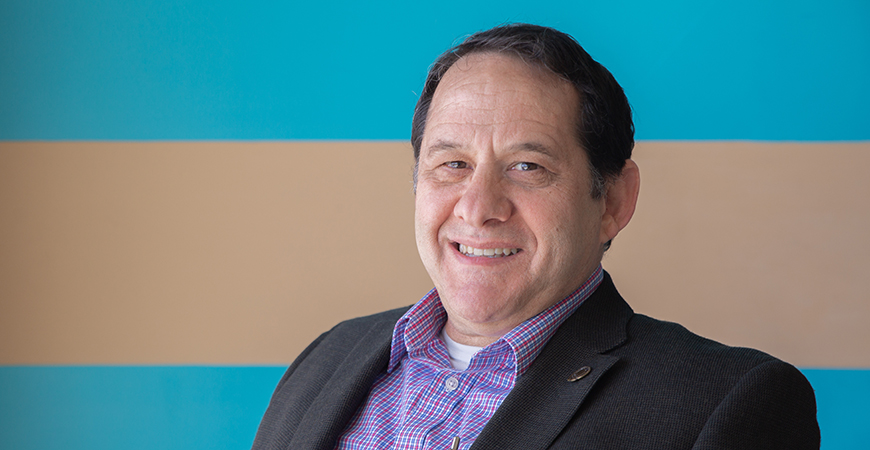
COVID-19 may have brought the world to a stand-still, but one thing that is still moving is information. Every day, new information is spread on television, social media and in print. But how can you be sure what you’re seeing is true when so many sources proclaim to have the latest news? Here to help cut through the noise is Deputy University Librarian Donald Barclay, whose book “Fake News, Propaganda, and Plain Old Lies: How to Find Trustworthy Information in the Digital Age” was published in June 2018.
- What exactly is fake news?
In thinking about what fake news is, it helps to say what fake news is not: Fake news is not information that runs contrary to, criticizes or otherwise challenges your most cherished beliefs. Just because it is news you don’t want to hear doesn’t make it fake.
I have identified three broad categories of fake news:
Mercenary fake news is created to put money in someone’s pocket. A lot of advertising falls into this category as do things such as websites and YouTube channels that use false — often inflammatory — information to attract visitors for the sole purpose of generating advertising revenue for the creators.
Fake newswith an agenda promotes a cause or idea. Political propaganda is the best-known example of this type of fake news.
Satirical fake news consists of satirical stories created for purposes of humor as well as, in many cases, political or social commentary. The Onion provides a steady stream of modern-day examples. Satirical fake news becomes a problem when it is taken out of context and reported as if it were not satire.
- How is fake news relevant to the COVID-19 pandemic?
The biggest fake news problem during the pandemic is people spreading information that will only serve to make the situation worse. This ranges from bad medical advice: “If you drink enough water, it will wash the virus out of your system and you’ll be fine,” to pandemic denial: “COVID-19 is just the flu and this whole thing is a hoax to control us and make us submissive to authority. Resist!!” That’s the kind of fake news that will kill people and needlessly extend the physical, emotional and economic pain caused by the pandemic.
- How can people spot fake news about COVID-19 or any other topic?
The Latin phrase cui bono translates as “Who stands to gain from this?” A good question to ask of any information you encounter.
The most outrageous sorts of fake news about COVID-19 are pretty easy to spot. For instance, if somebody claims to have a simple cure for COVID-19, logic tells you it has to be fake news. If there were a simple cure, why on Earth wouldn’t every politician, business leader and health professional on the planet be embracing it?
It is important to remember that in the age of social media, there is money to be made by standing out in the crowd, in distinguishing yourself from everyone else who is out there hustling for online fame and resultant fortune. It is easier to attract followers and advertisers by being outrageous than it is by saying rational things like “Listen to the professionals. Maintain social distancing.”
- There are a lot of sources of information claiming to know the latest on COVID-19. How can people be sure what they’re reading is trustworthy?
For one thing, COVID-19 is such a fast-moving crisis that information that is credible today could become discredited tomorrow. You really need to look at the date of creation (as opposed to publication) on any information you find about COVID-19.
In general, I advise people to look at sources such as the National Institutes of Health, the Centers for Disease Control and the World Health Organization, as well as medical research institutions such as UC San Francisco and the Mayo Clinic. The U.S. National Library of Medicine’s MedlinePlus website is an excellent source of highly credible information for the layperson. I would always start with MedlinePlus and then branch out from there.
- What are your tips for what to do if you’re in doubt of information you’ve received about COVID-19?
Because information is created by fallible human beings, no information is perfect. But some information is highly credible, some is much less so, and some not at all. We need to evaluate information in order to make well-informed decisions. Here are questions we should all ask when evaluating information around COVID-19:
- Who is the author/publisher/creator of the information and what are their qualifications?
- When was the information created?
- Did you read beyond the headline/title?
- Is the information a primary source (scientists reporting on their own research) or a secondary source (a journalist reporting about research conducted by scientists)? If possible, check out the primary source.
- Does the information cite other credible sources?
- Can you find other credible, independent sources that support, or contradict, the information you found?
- Does the information report something that completely contradicts the common wisdom?
- Is the information a joke?
- Is there anything else to know about fake news?
If you are seeking information in order to make good decisions, give yourself enough time to evaluate the information and think carefully about what you have learned. Most of us suffer from a cognitive bias called “anchoring” or “focalism,” which is a tendency to latch onto the first information we come across and give it undue weight in our decision making. Allowing yourself some time to process and evaluate information can help you overcome that cognitive bias and make better decisions than you would make in a rush to judgment.



